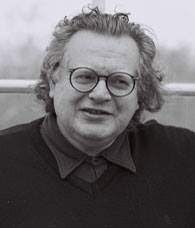Hirst, Paul

Bio: (1947-2003) British sociologist. Paul Hirst taught at the University of London. He considers himself a post-Marxist. In the book Pre-capitalist Forms of Production (1975), co-authored with Barry Hindess, the authors critique the classical Marxist view of feudalism and the Asian mode of production. They believe that the key relationship for feudalism is the economic appropriation of surplus by the owners of the land, from those who cultivate that land, regardless of the legal form (tax, rent) of appropriation of surplus. In addition, the specific legal position of those who cultivate the land is not important for feudalism, unless they are slaves. Feudalism, as an economic form, can be applied to any agrarian society, regardless of whether it is at the state stage or not.
Hirst later turned to issues of democracy and economic globalization. In the books Representative Democracy and Its Limits (1990) and Associational Democracy: New Forms of Economic and Social Governance (1994), he presents a pluralistic critique of representative democracy and proposes new principles and concrete solutions for the development of pluralistic democracy in modern complex societies.
In the book Globalization in Question (1999), co-written with Graham Thompson, the authors critically approach the thesis of the great increase in economic globalization in the late twentieth century. They believe that the world economy is more international than global. Nation-states continue to play a major role in regulating both domestic and international economies. Even multinational corporations operate more regionally than globally. The authors believe that the volume of foreign direct investment, as well as the volume of trade in goods and labor, at the global level, is the same, or less, than in the period from 1870 to 1914.
Fields of research
Agriculture Capitalism Corporations Democracy Economy Exploatation, Economic Feudalism Globalization History Politics Slavery StateTheoretical approaches
Marxism – Post-Marxism (Neo-Marxism)Main works
Pre-capitalist Modes of Production (1975);
The Pluralist Theory of the State: Selected Writings of G. D. H. Cole, J. N. Figgis, and H. J. Laski (1989);
Representative Democracy and its Limits (1990);
Associational Democracy: New Forms of Economic and Social Governance (1994);
Globalization in Question: The International Economy and the Possibilities of Governance (1999).

